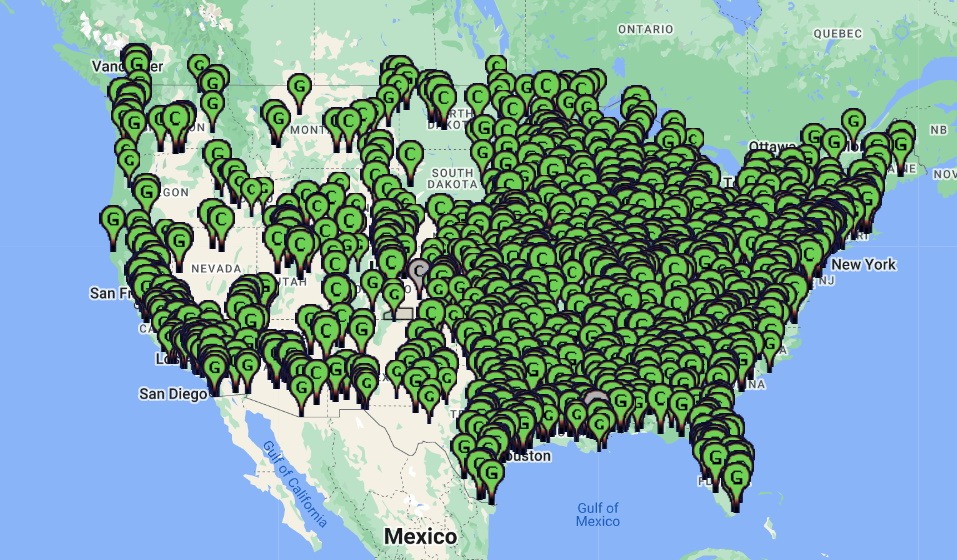Residents of six counties in North and South Carolina facing massive chicken and pig-manure burning biomass power incinerators, including a man dressed as a chicken [pictured below], were barred from giving testimony at a North Carolina Utilities Commission hearing over biomass electricity requirements on August 28 in Raleigh.
The hearing was in response to a request by Duke Energy, Progress Energy, Dominion Power and others to hold off on the requirement that they provide a certain percentage of North Carolina’s electricity from poultry and pig feces, as had been mandated by the state’s Renewable Energy Portfolio Standard in 2007. Technical and financial issues have made it impossible for the companies to provide the required 170,000 megawatt hours from poultry waste in 2012.
“The principles of environmental justice require fairness, an open door and an open mind,” said William Frederick, Sr., who traveled over seventy miles from Sampson County to urge the Commission to do more than simply delay the requirements, but actually remove biomass electricity requirements altogether from the Renewable Portfolio Standards.
“We cannot allow the Commission to trample on our right to be heard.” Jimmy Bruce, who traveled more than 200 miles from his home in Chester County, South Carolina was also irked by the Commission’s refusal to allow public comment. “We got called a lot of bad names fighting that incinerator, but we sure had an open debate,” Bruce said, referring to his South Carolina community’s successful efforts to fend off a trash incinerator in 2010. “What has gone wrong with the Old North State?”
“Now is the time to end the set asides once and for all, and with the changes in North Carolina’s air toxics standards, these facilities will be dirtier than ever,” said Therese Vick, North Carolina Healthy and Sustainable Communities Coordinator for Blue Ridge Environmental Defense League (BREDL). “Instead of pushing the stinky proposals, the utilities should focus on truly clean energy like solar power and wind.”
Although barred from speaking at the hearing, Vick vowed to expand BREDL’s ongoing, five-year-long campaign to halt waste-to-energy proposals wherever they appear.
Lou Zeller, Executive Director for BREDL—was allowed to testify before the Commission due to BREDL’s legal standing as an intervener in the case—focused on human health, climate change and economic impacts from biomass incineration.
Comparing data collected on a poultry waste incinerator based in England to a coal fired power plant in Spencer, North Carolina, Zeller determined that the “poultry litter fueled plant emitted 150% more total air pollution than the coal-fired electric plant.” His numbers also challenged the biomass industry’s “carbon neutrality” claims, while reminding the Commission that burning poultry waste “eliminates a valuable organic fertilizer” for growing food.
Zeller insisted that biomass power incinerators are a bad financial deal for communities, explaining that, “when approached by energy entrepreneurs, most rural county economic development boards and local governments have neither the experience nor the ability for the due diligence required to protect the economic interests of taxpayers.”
Dr. Michael Noll, executive director for Georgia-based Wiregrass Activists for Clean Energy (WACE), echoed Zeller’s concerns in his testimony that “biomass plants are dirtier than coal firing plants,” referring to statements made by the American Heart Association, the American Cancer Society and medical associations across the country.
Noll also refuted the biomass industry’s “carbon neutrality” claims, while calculating the massive water withdrawals needed to cool the incinerators, particularly disconcerting during this summer’s widespread drought and crop losses. Economically, Noll said solar power was a much better deal than biomass, particularly when factoring in how dependent biomass incinerators are on “federal stimulus funds and tax credits.”
An employee of Duke Energy concurred with Noll’s economic assessment, according to BREDL’s Therese Vick. At the hearing, Emily Felt, Duke’s Renewable Energy Portfolio Standards compliance manager, agreed that the price of solar power was indeed cheaper than biomass.

